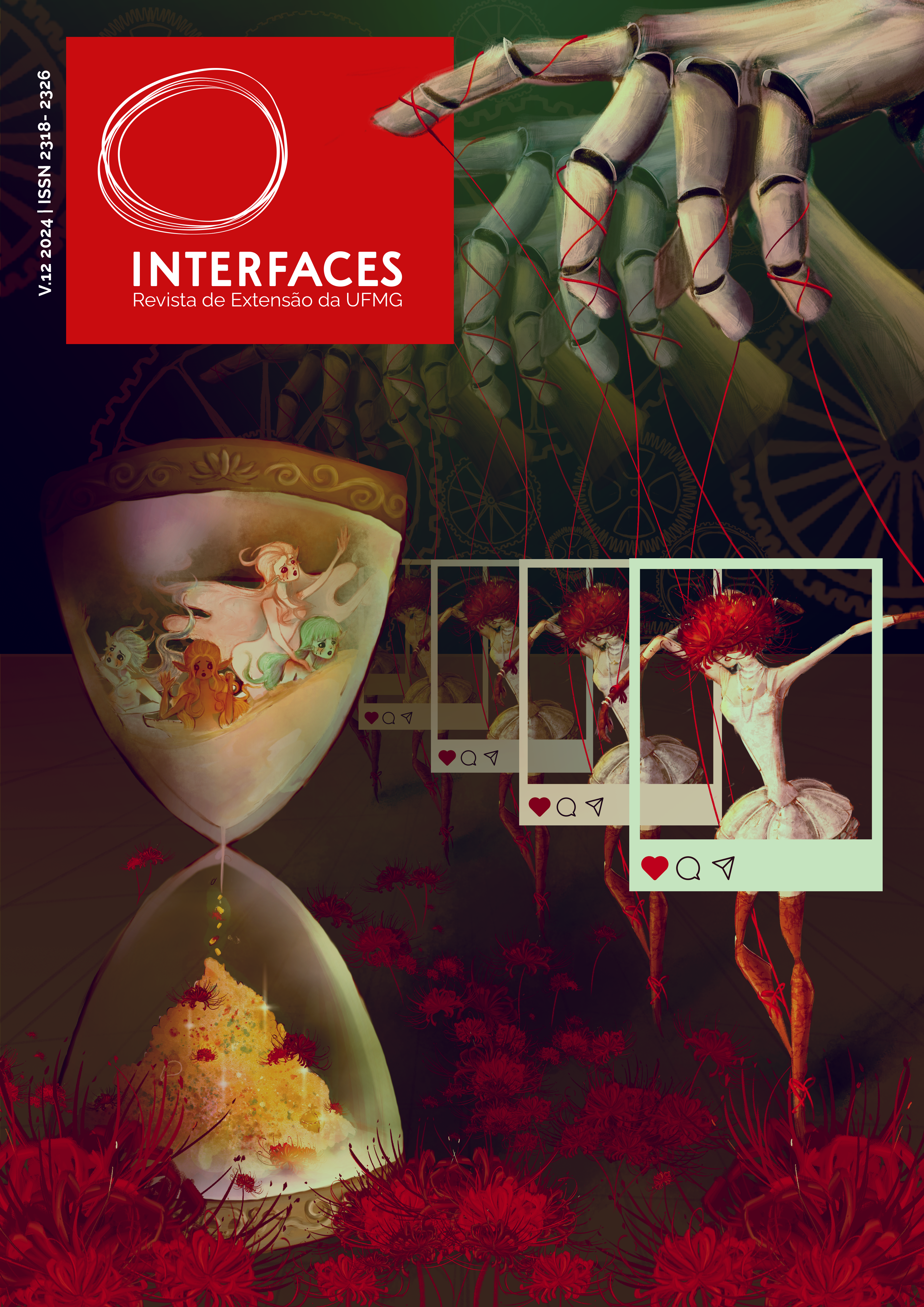PROJETO MULHERES EM CIÊNCIA DA SAÚDE
Divulgação para conscientização do espaço da mulher no meio científico
DOI:
https://doi.org/10.35699/2318-2326.2024.46666Keywords:
Gênero, Equidade, Projeto de extensãoAbstract
The academic environment, for years, has been conducted by men, resulting in gender inequality on academic and scientific activities. For this reason, we developed the extension project “Women in Health Science”, related to the Universidade Federal do Rio Grande do Sul, that aimed to promote the appreciation and awareness of the space occupied by women in the academic and scientific environment to encourage gender equity. Objective: To present the conquer results of the project. Methods: Were developed by the project activities of disclosure and awareness of gender bias social media for the academic and non-academic public, in addition to free online events. Results: There was great participation of the female audience on the project's social media, with emphasis on Instagram, where 84.9% of the followers are women. Regarding the events, there was great interest on the part of the female public and low adherence by the male public. Conclusion: Through public participation and adherence to the proposed activities, we conclude that the extension project was successful. We observed great public interest in increasing their knowledge about gender and science.
Downloads
References
Barros, S. C. DA V.; Mourão, L. (2018). Panorama da participação feminina na educação superior, no mercado de trabalho e na sociedade. Psicologia & Sociedade, v. 30, n. 0, 8 out. https://doi.org/10.1590/1807-0310/2018v30174090
Bertolini, L. B. A. (2002). Relações entre o trabalho da mulher e a dinâmica familiar (2ª ed.). São Paulo: Vetor
Conselho Nacional de Desenvolvimento Científico e Tecnológico – CNPq. (2016). Evolução da Formação de Mestres e Doutores no Brasil.
Coordenação de Aperfeiçoamento de Pessoal de Nível Superior – CAPES. (2016). GEOCAPES Dados Estatísticos.
Fundação Instituto Brasileiro de Geografia e Estatística (IBGE). (2019). Censo Brasileiro de 2019. Rio de Janeiro: IBGE.
Instituto Nacional de Estudos e Pesquisas Educacionais Anísio Teixeira – INEP. (2015). Censo da Educação Superior 2014 – Notas Estatísticas.
Mourão, T. M. F.; Galinkin, A. L. (2008). Equipes gerenciadas por mulheres: representações sociais sobre gerenciamento feminino. Psicologia: Reflexão e Crítica, v. 21, n. 1. https://doi.org/10.1590/S0102-79722008000100012
Mello-Carpes, P. B. Abreu, A. Staniscuaski, F. Souza, M. A. Campagnole-Santos, M. J. Irigoyen, M. C. (2018).Actions developed by the Brazilian Physiological Society to promote women’s participation in science. Advances in Physiology Education, v. 43, n. 2, p. 199–206, 1 jun. 2019. https://doi.org/10.1152/advan.00216.
Penner, A. M. (2015). Gender inequality in science. Science, v. 347, n. 6219, p. 234–235. https://doi.org/10.1126/science.aaa3781.
Scott, J. W. (1995). Gênero: uma categoria útil de análise histórica. Educação & Realidade. Porto Alegre, vol. 20, nº 2, jul./dez.
Staniscuaski, F. et al. (2021). Gender, Race and Parenthood Impact Academic Productivity During the COVID-19 Pandemic: From Survey to Action. Frontiers in Psychology, p. 663252–663252. https://doi.org/10.3389/fpsyg.2021.663252


